In physics research, computational physics has established itself as a third pillar next to experimental and theoretical physics – spurred by the broad availability of high-performance computing resources, from individual hand-held computing devices to national, building-filling supercomputing centers, the ever-growing amount of numerical data being produced in modern-day experiments (and some theories) harboring the potential for new discoveries, and the many conceptual, algorithmic, and numerical advances in simulating physics at all length and energy scales, spanning the whole arc from high-energy to biological physics. In short, computational physics has become an essential tool in modern physics research independent of discipline, which every physics student should be able to master.
This Practical Course M “Computational Physics” complements existing lectures on computational (many-body) physics in our department by hands-on numerical experiments. It covers a wide span of numerical techniques and introduces applications across different fields. Developed by a department-wide group of numerical practitioners it will guide you to a deeper understanding of what kind of physics insights can only be revealed by computer simulations.
Below, you find information about the organizatorial details and the list of projects.
Organization
This winter term (2025/26) we will continue this new branch of the Practical Course M with a group of 15 students, which we will again randomly select from the group of all registrants for this course. In order to get into the selection pool, please sign up via ILIAS. You will also have to attend (in person) the mandatory, introduction meeting to fully understand the required prerequisites, topical scope, and modus of operation of this M-Lab.
Registration deadline: October 14th, 6pm
Should the number of registrations exceed the capacity, participants will be selected by (computer-aided) random choice.
- Mandatory introduction: October 13th, 2.30pm, seminar room E0.02 (new theory building).
- Registration deadline: October 14th, 6pm.
- Completion of all tasks: March 30th, 2026.
The projects of the computational physics lab course will be conducted individually (i.e. not in groups of 2-3 people as in other branches of the Practical Course M). The procedure for conducting a project will be as follows:
- Preparation of the theoretical background
- Kick-off meeting with the responsible tutor: Discussion of the theoretical background to obtain the “Testat” and clarification of any questions
- Work on the project
- Submission of the results 3 weeks after the kick-off meeting
You will be able to book the dates for the kick-off meetings for your choice of projects at the beginning of the semester.
Important: You have to complete your four projects within the semester, i.e. by September 30th (if you take the course in the summer term), or by March 31st (if you take the course in the winter term). To document the completion of the projects, please have your tutors sign this project check sheet and keep it for your records.
The final submission of the project results will consist of the following items:
- The source code written to perform the simulations (in a programming language of your choice).
- A short written summary of the main results in the form of a PDF (max. 5 pages). This document should contain a presentation and discussion of the main results.
- A video presentation of the project (max. 15 minutes). The presentation should comprise a short introduction to the physical background, an explanation of the main points of the implementation, and the main outcomes of the project.
Contact
- Simon Trebst - trebst@thp.uni-koeln.de
